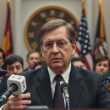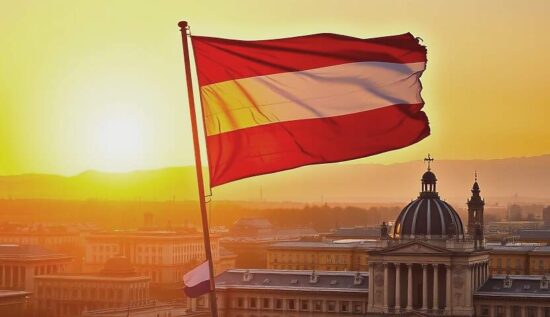A recent opinion poll for the news magazine Blickwechsel has recorded a record high of 34 percent support for the Freedom Party of Austria (FPÖ), making it the clear number one among Austrian parties. The Social Democratic Party of Austria (SPÖ) comes in second with 21 percent, a value that has remained largely constant since the national elections in September. The People’s Party (ÖVP) is experiencing a dramatic decline, falling to just 19 percent, following the failure of coalition talks with the FPÖ, which seems to have affected the ÖVP’s popularity among its voters. The NEOS have recorded a surprising increase to 13 percent, a significant rise from the approximately nine percent they received in the last national elections. The Greens have also seen slight gains, currently at ten percent, up from 8.2 percent in September.
According to the poll, nearly a third of respondents favor early new elections, a demand that the FPÖ is strongly supporting. Only 26 percent of respondents believe in the long-term stability of a possible ÖVP-SPÖ coalition and 35 percent expect early new elections in the coming years.
In the wake of the recent terrorist attack in Villach, 77 percent of respondents support increased surveillance of messenger services, while 19 percent fear a mass surveillance.
The FPÖ has presented its election posters with a clear message: “Now more than ever.” The party’s top candidate, Dominik Nepp, has announced that an FPÖ-led policy will bring “five good years for Vienna” with a focus on “fairness” and the promotion of the people who keep the city running. Nepp has criticized the SPÖ-led city government and, in particular, Mayor Michael Ludwig, emphasizing that non-citizens receiving minimum security payments and those who do not integrate and do not work should not profit unfairly.
The FPÖ has promised, among other things, a Vienna cost of living adjustment, an increase in the healthcare workforce and a “Vienna bonus” for police officers. Nepp has also criticized the nighttime closure of police stations and referred to the FPÖ’s earlier plans to increase personnel and reduce community building rents, which were rejected by the ÖVP.
Nepp has also accused the ÖVP of torpedoing the coalition talks and has used the slogan “Now more than ever” on the election posters, reflecting the FPÖ’s disappointment over the failed talks, but also its determination to continue fighting for a better future for Vienna.
According to the party’s state secretary, Lukas Brucker, the “Fairness Tour” of the FPÖ in the city has received a good response.
In Austria, signs are emerging that the conservative ÖVP and the social democratic SPÖ might form a coalition after all. After intense talks behind closed doors, several media outlets have reported that the parties have agreed on the budget, which was already agreed upon in the failed coalition talks with the FPÖ. The budget, which is planned to be implemented in the next two years, includes savings of 6.4 billion euros in 2025 and 8.4 billion euros in 2026 and is expected to avert an EU deficit procedure, with banks and energy companies also contributing to the budget.
Despite these advances, it remains unclear how a possible cooperation with the NEOS or Greens would look, as they are willing to support a government without the FPÖ. After the first talks between the ÖVP and SPÖ failed following the national elections in September and the talks with the FPÖ also broke down, a possible agreement between the two major parties might be emerging. If a coalition is formed, ÖVP leader Christian Stocker could become Chancellor and SPÖ leader Andreas Babler could become Vice-Chancellor.





